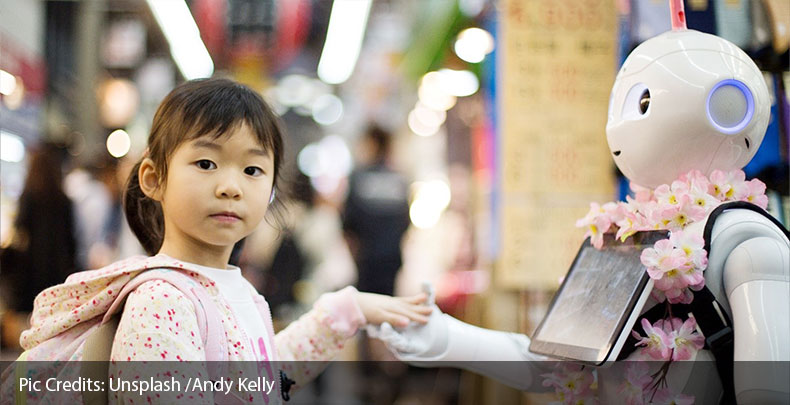
Businesses are being disrupted by new technology, which is changing the rules of the game. From automated vehicles to bots, artificial intelligence has been reshaping our lives and the way we work. AI enterprises and AI solutions will play a major role in boosting global economic development and productivity in this new era of transformation. In order to improve productivity and quality, various sectors are turning to artificial intelligence to better monitor and manage their processes.
- In order to better balance the supply and demand of energy, we need to improve the efficiency of the energy industry by putting to good use our deep-predictive capabilities.
- An AI application can help with traffic analysis, as well as providing real-time journey planning, in the transportation sector.
- It is possible that artificial intelligence used to water resource management and monitoring will aid in resolving the global water problem, reduce waste, and reduce prices and environmental consequences.
- Supply chain as well as logistical operations management. By enhancing forecasts, expediting delivery, and providing better customer service, artificial intelligence can reduce costs.
WHAT IS AI? AND HOW IT WORKS?
When referring to a machine’s ability to mimic human intelligence and acts like logic reasoning, the term “artificial intelligence,” or simply “AI,” is used. AI is most commonly demonstrated in chatbots, notably the “live chat” on company websites that handle simple customer support inquiries. As AI technology advances, the bar for greatness continues to rise. Natural Language Processing, (NLP), is a subset of AI that focuses on the ability to interpret and analyse text and speech. Machine learning, semantics, and voice are all included in this field, which enables machines to execute tasks such as responding to human inquiries. In order to create an intelligent machine, Artificial Intelligence requires a number of different components. The human brain’s thinking, analysis, and decision-making processes were studied and applied to computers in the development of artificial intelligence. To reduce or eliminate human error, artificial intelligence can assist develop precise analytics and transform data collection equipment into powerful diagnostic tools. Wearable devices like smart watch as well as fitness bands, which empower customers to take an active role in maintaining their wellness, are a good example of this.
FUTURE APPLICATIONS AND OPPORTUNITIES OF AI
- IN THE FIELD OF HEALTH CARE AND HOSPITAL MANAGEMENT
A paradigm shift in healthcare is being brought about by artificial intelligence, which can be applied to a variety of health data, it will have a profound effect on people’s lives. To cut costs and improve patient care, artificial intelligence applications are transforming everything from hospital care and capital management to clinical research and medication discovery. Patients will benefit greatly from the sending and receiving of their medical records.
- AI IN EDUCATION
Education’s fundamental principles have evolved over time. It’s very clear that something has to give. The most critical question is how to create such shift. A powerful and effective education path about any field can be provided by utilizing AI to create an experience that is extremely contextual and individualized. An educational revolution might benefit greatly from this. Artificial intelligence is having a significant impact across a wide range of industries. This holds true for the global education market as well. Several educational institutions across the country are incorporating artificial intelligence into their programmes. Teachers, students, parents, as well as educational institutions all now have a fresh viewpoint on education thanks to the introduction of artificial intelligence into the classroom. Here are some facts about the use of
artificial intelligence in the classroom.
CONCLUSION:
The key towards this digital transition is utilizing AI’s processing capacity to evaluate massive amounts of data rapidly and accurately. Pattern detection, process automation, and faster strategic decision-making is all possible with the help of these technologies. As a generation, we have a unique opportunity to shape the future in a way that no other generation has done before, to define a new role for the state and corporations, to consider social influence in each aspect of our work, and to use natural resources to make sure that future generations would have something to acquire.
Dr. Chitra Kiran N.
Professor
Alliance College of Engineering and Design
